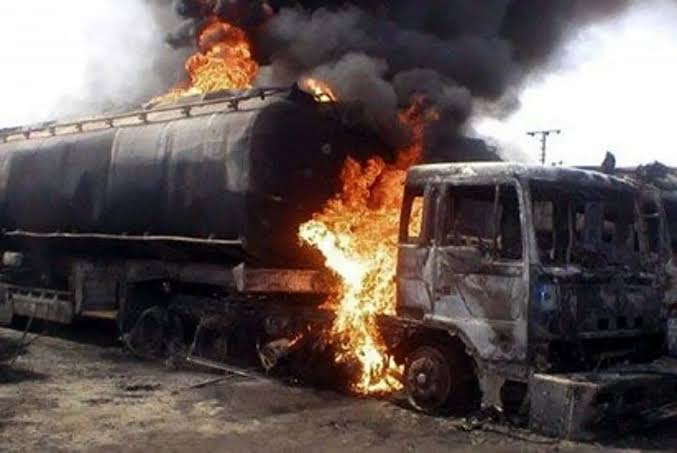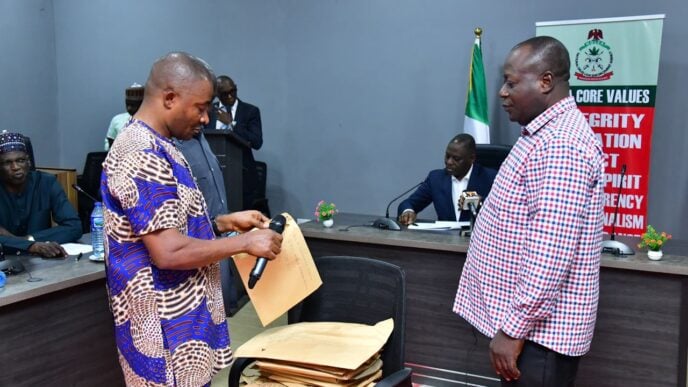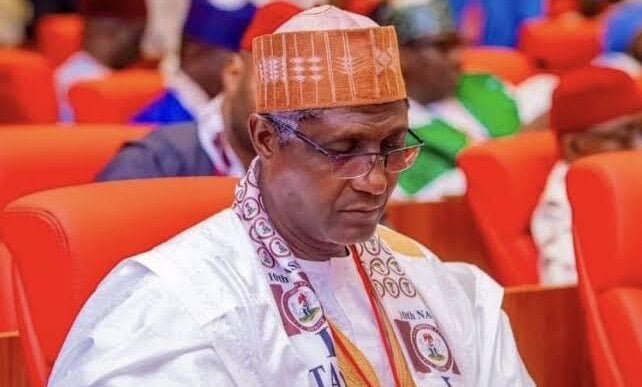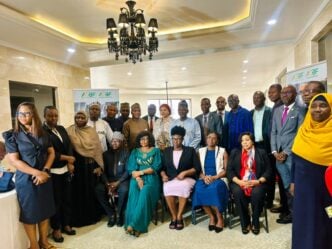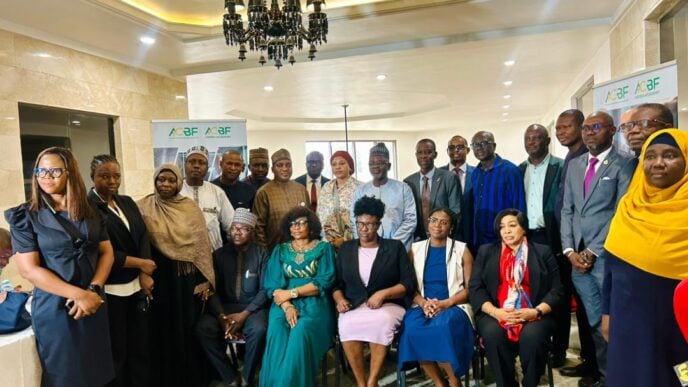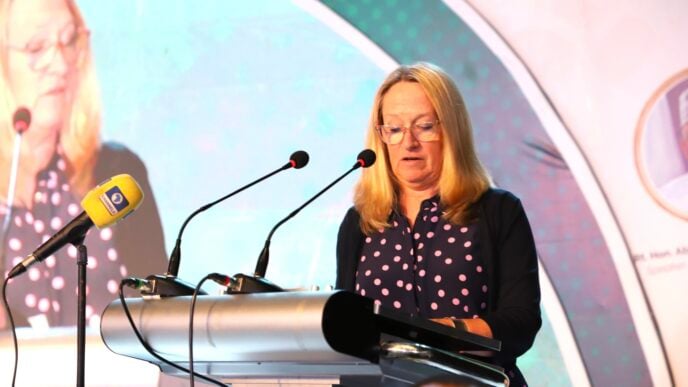Tanker explosion scene | File photo
The Nigerian Midstream and Downstream Petroleum Regulatory Authority (NMDPRA) has recommended stricter measures for petrol fuel tankers to curb the cases of explosions across the country.
Mustapha Lamorde, the NMDPRA’s executive director of safety, environment, and community, said the regulations were part of resolutions from a technical working committee set up by the agency comprising key stakeholders to respond to the high rate of fire incidents and explosions on highways.
Lamorde spoke in Abuja on Tuesday at a one-day stakeholders forum organised by the Federal Fire Service (FFS), with the theme “Advancing fire safety in the oil and gas sector of Nigeria through technological solutions”.
He said some of the resolutions from the committee were to ensure reduction in the capacity of trucks in transit and a 60,000-litre limit on the vehicles.
Advertisement
“Introduction of a safety law initiative so that from the point of loading, the drivers are inspected to be sure that they are fit as well as roadworthy,” Lamorde added.
“Ensuring that only trucks fitted with anti-spill devices and proper safety fittings are permitted to load products, amongst other intervention approaches.”
Olubunmi Tunji-Ojo, minister of interior, urged stakeholders in the oil sector to invest in preventive measures for fire outbreaks.
Advertisement
Represented by Abdulganiyu Jaji, controller-general of the FFS, Tunji-Ojo also charged the private and public sectors to look towards fire safety technology and infrastructure.
The minister said recent fire outbreaks in the oil sector reinforced the urgent need for innovative and technology-driven solutions to enhance safety and disaster preparedness.
“The cost of neglecting fire safety far outweighs the investment in prevention, so let us prioritise proactive measures over reactive firefighting—both literally and figuratively,” he said.
“The federal government alone cannot drive this change; it requires the active participation of industry stakeholders, technology providers, and regulatory bodies.
Advertisement
“The ministry of interior under the leadership of President Bola Tinubu will continue to support initiatives that promote safety in critical sectors, including the oil and gas industry.
“We are open to partnerships that will drive innovation, improve regulations, and ultimately save lives and protect national assets.”
He urged the stakeholders to strengthen regulatory compliance to ensure adherence to safety standards.
Speaking in his capacity as FFS controller general, Jaji listed smart sensors and IoT for real-time hazard monitoring, advanced fire suppression systems tailored for high-risk facilities, data analytics to predict and mitigate risks before they escalate, and training simulators to enhance the preparedness of emergency responders as best technological practices.
Advertisement
“Fire safety is a collective responsibility. While the Federal Fire Service (FFS) is mandated to lead fire prevention and mitigation efforts, we recognise that partnerships with industry stakeholders, technology providers, and regulatory bodies are indispensable,” he said.
Billy Gillis-Harry, the national president of the Petroleum Retail Outlets of Nigeria (PETROAN), urged the oil and gas sector to adopt the use of F-500 encapsulator firefighting technology in tackling fire emergencies.
Advertisement
Gillis-Harry called on regulatory agencies to mandate F-500 integration in new and existing facilities as part of fire safety compliance and urged a multi-sectoral approach as a fire combative measure.
Advertisement
